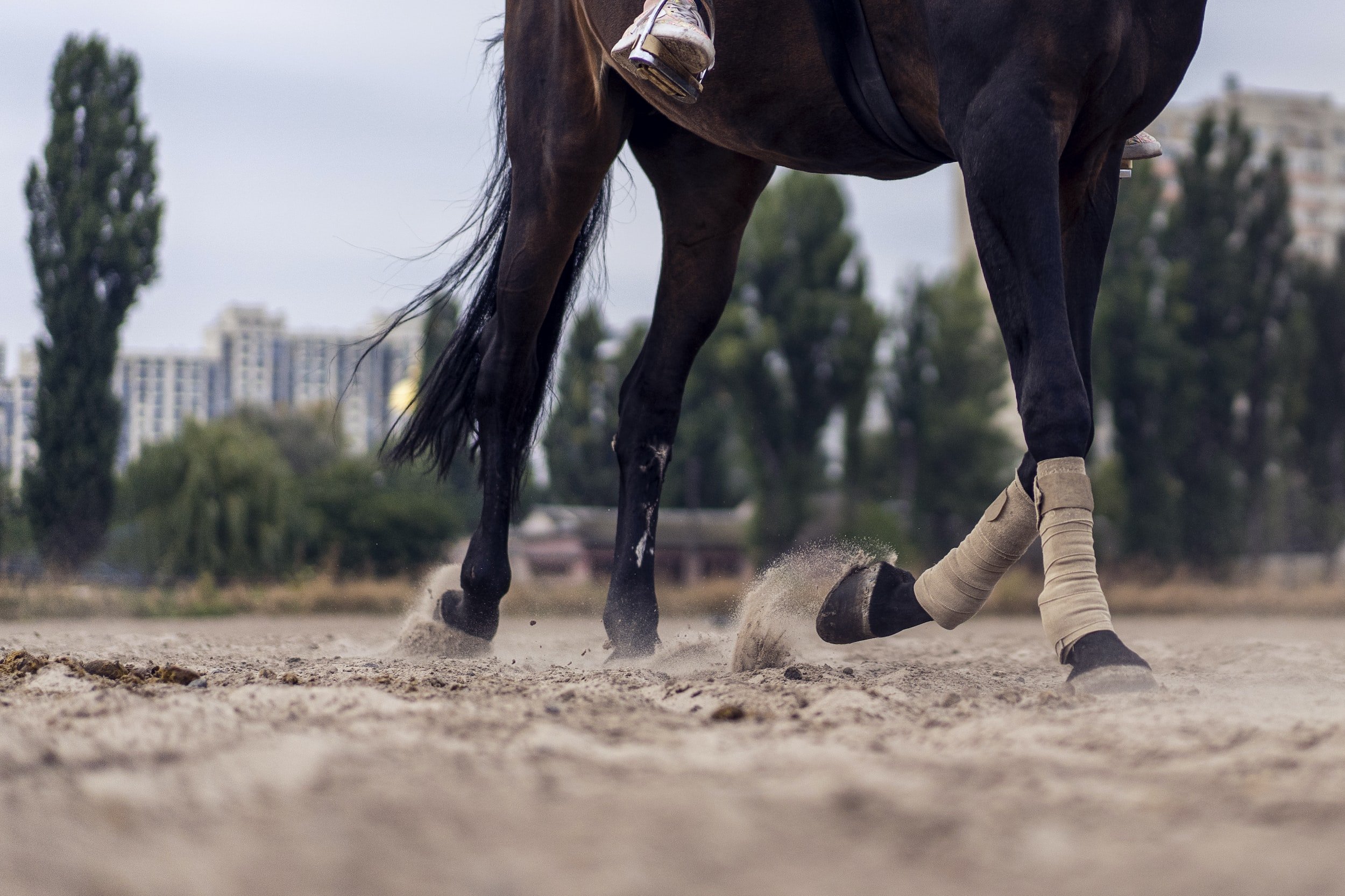Headshaking in Horses
Head shaking is an awful condition that affects many horses around the globe - one of my own included. What most people don’t realize is that it is often times incredibly painful and is usually paired with migraine like symptoms.
Head-shaking can manifest and present in several ways:
Frequent shaking of the head
Frequent and involuntary flicking of the nose
Involuntary, random, head shaking or flipping
Blowing out “sneezing” constantly or excessively, especially while eating
Lip twitching, lip rubbing and lip smacking
Rubbing their face on things
Seasonal occurances (due to allergies, wind, sun, etc.)
It is important to remain aware when you are in the presence of a headshaking horse as they may experience nerve firing that leads to involuntary flicking which just might pop you if you aren’t paying attention.
The overall consensus seems to be that headshaking in horses is due to irritation of the trigeminal nerve which is a complicated cranial nerve in and of itself.
Trigeminal Neuralgia in humans is sometimes referred to as the ‘suicide disease’, due to the agonizing pain that comes with the rather hard to treat condition.
Horses with headshaking will often look as though they have a headache or migraine during a bad flare up. This can cause them to become sensitive to the sun, the wind, eating, and even the noseband, or poll/crown piece on their halter or bridle. These horses may be head-shy or hesitant to have their face handled or touched.
Various Theories and/or Reasons for Headshaking and/or Trigeminal Nerve Irritation in Horses:
Seasonal or Constant Allergies
Sunlight
Wind
Ear infection or mites
Nerve Impingements
Temporohyoid Osteoarthropathy (THO)
TMJ Disorders and Dysfunction
Injuries & Trauma (Direct, Local & Distant)
Pullback Episodes, Flipping Over
Nuchal Ligament Damage
Cranial Bone Compaction
Impeded Cerebral Spinal Fluid
Excess Nitrogen in Alfalfa, Pasture or Weeds
Magnesium Deficiency
Electrolyte Imbalance
Relief Options:
Osteopathy with Parietal, CranioSacral and Visceral Evaluations
Acupuncture
Lycra Fly Mask (the gentle pressure can sometimes be soothing)
Fly Mask with Nose Piece
UV Fly Mask to help reduce sunlight
Stalling indoors during daylight hours
Zyrtec or other allergy medication
Removing alfalfa
Removing pasture
Removing access to weeds
Increasing magnesium (glycinate) levels
Electrolyte patches
Red Light Therapy
It appears that my personal mare has suffered previous head trauma (either direct to the cranium, a bad pullback, or something else that I am completely unaware of). Events like this could have made her more susceptible to headshaking. She also has some TMJ dysfunction from years of poor dental work and other immobilities within her body. She is 19 years old after all and I am unaware of what the first 12 years of her life looked like besides a few races.
However, I have noticed that she seems to be affected by several things.
The first one being alfalfa. Just recently, I tried putting her back on a pelleted supplement that had alfalfa in it and her headflicking returned shortly after.
The difficult thing here is this also coincided with a change of season as we shifted into Spring. Allergens could be inflaming her sinus cavity contributing to the hyper-sensitivtiy of the cranial nerves. When she is having a terrible flare-up to the point that even eating is irritating sometimes we will soak her hay to reduce dust.
I also noticed that it was far worse on sunny days. Using a strong UV mask and putting it on before the sun comes up seems to help. This tells me there is some form of ocular nerve involvement. Perhaps the nerve is already sensitive and the sunlight pushes it over the edge and amplifies everything else.
Over the years I’ve also noticed it flare up in conjunction with any form of stress.
Lastly, she receives regular craniosacral therapy and bodywork.
I removed the supplement with alfalfa and it is all remarkably better. She is still susceptible, but it is at least manageable and she is MUCH more comfortable.
I have also found great success with the ‘Brain & Nerve Support’ by Silver Lining Herbs. Anytime she has a bad flare up and nothing else is working then I put her on this and it really does seem to help.



